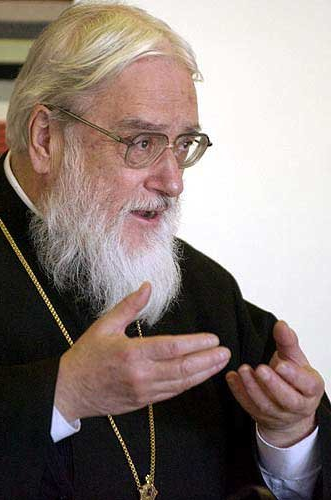~ Maximos the Confessor, The Philokalia, Text 62, First Century of Various Texts
TALK ABOUT IT What do you think about the Incarnation as the means of atonement (uniting human and divine natures)? Why then the Crucifixion?
NOTE
Maximos notes that it is love that unites those who have been divided and is able to create a unity of will and purpose. The praxis he recommends is "simply that we should show mercy and receive mercy" (Text 45).
DOING IT (INNER PRACTICE) How are you being called to practice receiving mercy?
DOING IT (OUTER PRACTICE) How are you being called to practice showing mercy?
LEARNING FROM MAXIMOS THE CONFESSOR: CHURCH OF RECONCILIATION



